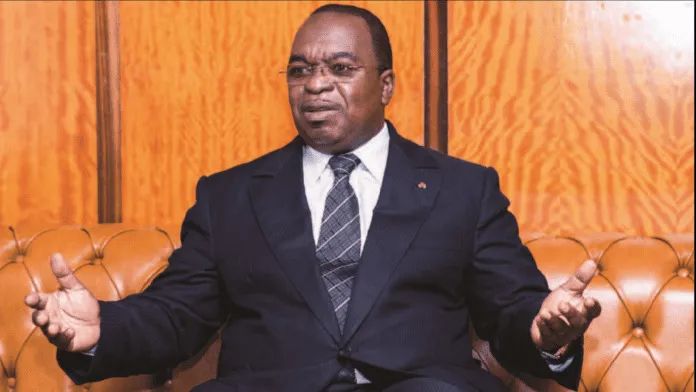The financing of the activity of the National Refining Company (Sonara) in 2022, the state of negotiations on non-bank cross-debted debts, the situation of the cross-debted debts of the tax authorities and other public entities, its financial viability or the implementation of the government’s guidelines were discussed with the IMF team staying in Cameroon, within the framework of the 4th review of the government’s economic and financial program supported by the Extended Credit Facility and the Expanded Credit Facility.
The fact that this file is one of the topics to be discussed is of the greatest concern to the Ministry of Finance. In fact, the SONARA file has not yet been validated by the IMF Board of Directors and is also the subject of invalidated criteria during the last review. “It is for this reason that he is again on the table of discussions with the IMF,” says a source close to the Fund’s delegation of experts.
However, we thought we had finished this file at the Ministry of Finance. “Indeed, a memo containing all the guarantees and measures envisaged and taken by the government was sent to them; but we are surprised that it comes back on the table especially with what we have achieved in recent times with regard to the debts of the banking sector and traders,” continues our source.
Since May 12, 2022, the date of the first meeting of the interdepartmental committee dedicated to the restructuring/rehabilitation of Sonara, the actions to be taken within 48 months had been clearly defined. Thus, the key actions concern the technical-economic and financial study accompanied by a business plan, a feasibility study at + or 30% of the cost of the Sonara reconstruction project, backed by a public-private partnership model developed in the best interests of the State and Sonara, as well as a model for the supply of raw materials and the price structure of petroleum products to be practiced. The report of this study must serve as a feasibility file necessary for the investigation necessary for the investigation of the Public-Private Partnership procedure, in accordance with the regulations.
Before reaching the choice of a private partner, the State, through the technical committee, should replenish the company’s own funds, carry out a technical-administrative and financial study with detailed costs, the schemes to be followed, define the legal, institutional framework and financing modalities of the said partnership.
“Things have certainly been done, including the bank restructuring of Sonara’s debt, the opening of a line for their repayment. The signing with Vitol, one of Sonara’s traders, of an agreement to restructure his commercial debt. But as for the recruitment of the consultant, it is difficult to say more, “it is blown to the Ministry of Finance.
“No doubt the IMF is waiting for the launch of the reconstruction and modernisation process in the final configuration of the “Sonara 2010” project to be announced. But we must not lose sight of the fact that the committee has set a period of four years for the conduct of priority actions. So, we will still have to wait, “concludes a Minfi official.
For the record, the State will have to mobilise 250 billion Fcfa to make up for the gap in losses suffered by the refinery. This would reduce them from 45% to 7%. The fire in the heart of the refinery on the night of May 30 to 31, 2019 caused losses of Fcfa 187 billion according to the commission of inquiry set up for this purpose.




